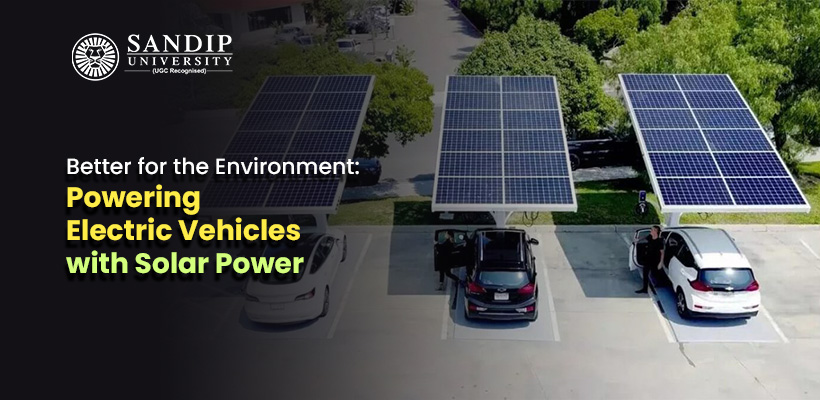In recent years, there has been a growing emphasis on sustainable and eco-friendly solutions to address the environmental challenges posed by traditional energy sources. One promising avenue for a cleaner and greener future is the convergence of solar energy and electric vehicles (EVs).
The idea of using solar energy to charge EV batteries holds immense potential for reducing carbon footprints and making transportation more sustainable. Many top electrical engineering colleges in Maharashtra are now offering specialised programs like M.Tech in Electrical Vehicles to provide trained engineers to this specific section of the automobile industry.
Let us take a look at some of the ways in which electrical vehicles powered by solar energy help protect the environment:
- Clean and Renewable Energy Source
Solar energy is an abundant and renewable resource that is harnessed by photovoltaic (PV) cells to generate electricity. By integrating solar panels into the infrastructure for EV charging, we can tap into a clean and sustainable energy source, significantly reducing the dependence on fossil fuels.
- Reduced Carbon Footprint
Traditional vehicles powered by internal combustion engines contribute significantly to air pollution and greenhouse gas emissions. The adoption of solar-powered EV charging can help mitigate these environmental impacts by reducing the reliance on electricity generated from non-renewable sources.
- Off-Grid Charging Solutions
Solar-powered EV charging systems can be implemented in off-grid locations, providing a solution for remote areas or places with limited access to traditional power sources. This not only expands the reach of EV infrastructure but also promotes sustainability in diverse environments.
- Energy Independence
Solar-powered EV charging promotes energy independence by decentralising energy production. With solar panels on rooftops, parking lots, or dedicated charging stations, individuals and businesses can generate their own clean energy, reducing reliance on centralised power grids.
- Incentives and Cost Savings
Governments and organisations worldwide are offering incentives to encourage the adoption of solar-powered EV charging. These incentives, coupled with decreasing costs of solar technology, make the switch to solar-powered EV charging an economically viable and attractive option.
- Technological Advancements
Ongoing advancements in solar technology, such as higher efficiency PV cells and energy storage solutions, are making solar-powered EV charging more practical and efficient. These developments are crucial for overcoming challenges related to intermittency and energy storage, ensuring a reliable and consistent power supply.
- Smart Grid Integration
The integration of solar-powered EV charging into smart grid systems enhances the overall efficiency of energy distribution. Smart grids enable optimised charging schedules, load balancing, and real-time monitoring, ensuring that energy is used efficiently and sustainably.
- Community Engagement
Solar-powered EV charging initiatives can foster community engagement by encouraging collaboration between individuals, businesses, and local governments. Community-based solar projects not only promote sustainability but also create a sense of shared responsibility for environmental stewardship.
Conclusion
As we stand at the crossroads of environmental consciousness and technological innovation, the marriage of solar energy and electric vehicles emerges as a beacon of hope for a sustainable future. The integration of solar-powered EV charging not only addresses environmental concerns but also promotes energy independence, cost savings, and community engagement. As technology continues to advance and society becomes increasingly committed to eco-friendly solutions, the sunlit road ahead for electric vehicles shines brighter than ever.

